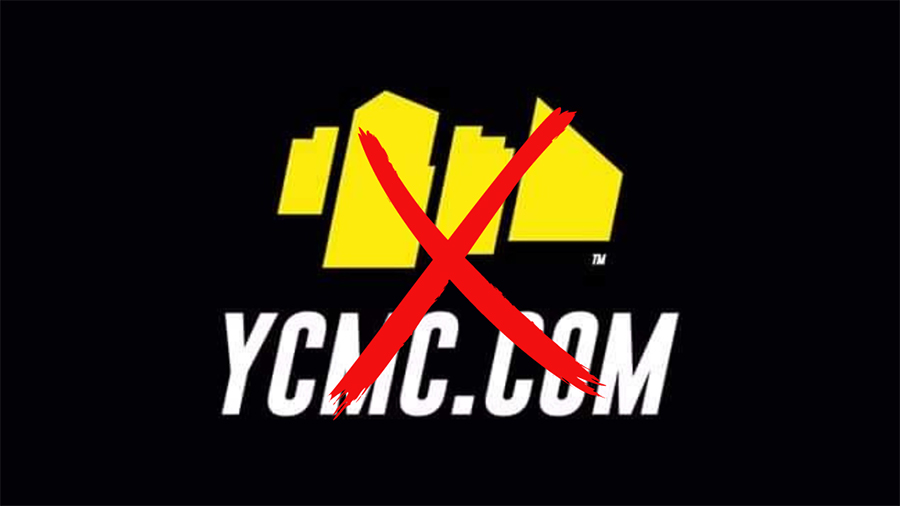Shoe City, a Baltimore-based sneaker and streetwear lifestyle retail chain operating 39 stores in Maryland, Virginia and Washington, D.C., and the online site, YCMC.com, filed for bankruptcy and will cease operations.
The parent company is ESCO, Ltd. The company was founded in 1949 as Eileen Shoes and went under YCMC, or Your City, My City.
According to court documents, ESCO had an unpaid principal balance of $3.2 million as of March 28, 2023. The debtor also estimates $16 million in outstanding unsecured debt.
The Top 10 largest unsecured creditors include:
- New Balance, owed $1.6 million;
- Timberland, $1.41 million;
- Funding Circle USA, $1.38 million;
- Puma, $1.35 million;
- Nike, $664,000;
- Under Armour, 623,000;
- New Era Cap, $471,000;
- Adidas, $361,000;
- CIT/Commercial Services, $290,000; and
- Mondawmin, $265,000.
Other vendors on the list of top-20 unsecured creditors include:
- Fila, owed $200,000;
- Asics, $137,000; and
- Reebok, $134,000.
YCMC will cease sales operations by May 31, 2023, to pay the pre-lender in full, according to court documents.
In the court documents, Stanley Mastil, senior director in Gavin/Solmonese, LLC, who has been appointed chief restructuring officer of ESCO, wrote that various factors have “severely impacted the profitability” of the debtor’s business, ultimately prompting the current liquidity crisis that precipitated the Chapter 11 case and move to dispose of assets.
Amid sales declines, ESCO incurred operating losses of approximately $280,000 and $1.76 million in fiscal years 2020 and 2021, respectively, which negatively impacted ESCO’s financial position and liquidity.
ESCO took several measures to address these issues, including shopping the company as a going concern and seeking third-party financing sources for replacement financing.
In May 2022, The Athlete’s Foot parent, the Arklyz Group, executed a deal to acquire ESCO to expand Arklyz’s North American presence. Arklyz, however, did not close on the deal, and ESCO could not regain profitability.
Starting in fiscal year 2020, certain vendors to ESCO’s business began to change their allocation of goods. The retailer “failed to receive certain high-end goods and new sneaker releases at the levels from previous years that are critical to this industry,” stated Mastil. In fiscal year 2022, comparable-store sales decreased by approximately $8.5 million from the prior years.
During the current fiscal year, sales continued to decrease by almost $5 million through January 2023 compared to the prior fiscal year, placing increased pressure on ESCO’s liquidity position “as none of the company’s efforts to improve its cash position came to fruition,” said Mastil.
As a result of the poor financial performance, ESCO has not complied with certain covenants under the pre-petition credit agreement, which constituted events of default under the pre-petition credit facility, added Mastil.
On November 15, 2022, ESCO and the pre-petition lender entered into a forbearance agreement, pursuant to which the pre-petition lender agreed to forbear from exercising any rights and remedies under the pre-petition credit facility. In addition to the liquidity constraints caused by the revenue decline, at or around the same time, in accordance with the forbearance agreement, the pre-petition lender imposed certain restrictions per the terms of the pre-petition credit agreement that further reduced liquidity.
Wrote Mastil, “These restrictions further impaired the debtor’s ability to (i) pay rent to many of their landlords; (ii) pay vendors in accordance with applicable terms and (iii) purchase new and popular inventory to supplement the inventory mix at their retail locations, all of which is essential to meet trends in order to maintain customer loyalty and drive customer traffic to stores. This inventory limitation further impacted sales, resulting in the inability to attract any recapitalization interest, further threatening all value of the debtor’s business.”
On February 6, 2023, ESCO and the pre-petition lender entered into a second forbearance agreement, pursuant to which the pre-petition lender agreed to forbear from exercising any rights and remedies under the pre-petition credit facility until March 15, 2023.
Mastil wrote, “As a direct result of these liquidity constraints, certain vendors would only ship product to the debtor on a cash-in-advance basis, which further stressed the ESCO’s liquidity position. Finally, the debtor’s top shoe vendor terminated its contract with the debtor in early March. Without new products on the shelves, the debtor was left with no viable options to save the business. Accordingly, the ESCO, in consultation with the pre-petition lender, agreed that the best path forward to pay off the pre-petition credit facility and hopefully provide for a return to other creditors was to conduct store closing sales at all 39 retail locations and liquidate substantially all of its assets for the benefit of all creditor constituencies.”
ESCO intends to conclude the store closing sales by May 31, 2023, and is hopeful that the proceeds will allow ESCO to pay the pre-petition lender in full. Mastil wrote, “The success of the store closing sales will dictate whether there is a runway for a liquidating Chapter 11 plan upon the conclusion of the store closing sales.”
A message on YCMC.com indicated that the site had closed. It reads:
“Thank you for shopping at YCMC. We are proud to have served your online shopping needs in recent years.
“We have made the difficult decision to cease operations for YCMC. Orders previously placed will be processed and shipped, provided the merchandise is available. We will continue to process any and all returns from orders placed prior to this announcement.
“Should you have any questions regarding a previous order or a process, please direct your inquiries to services@ycmc.com
“Again, thank you for letting us serve you.”
Photo courtesy Sole Retriever
















